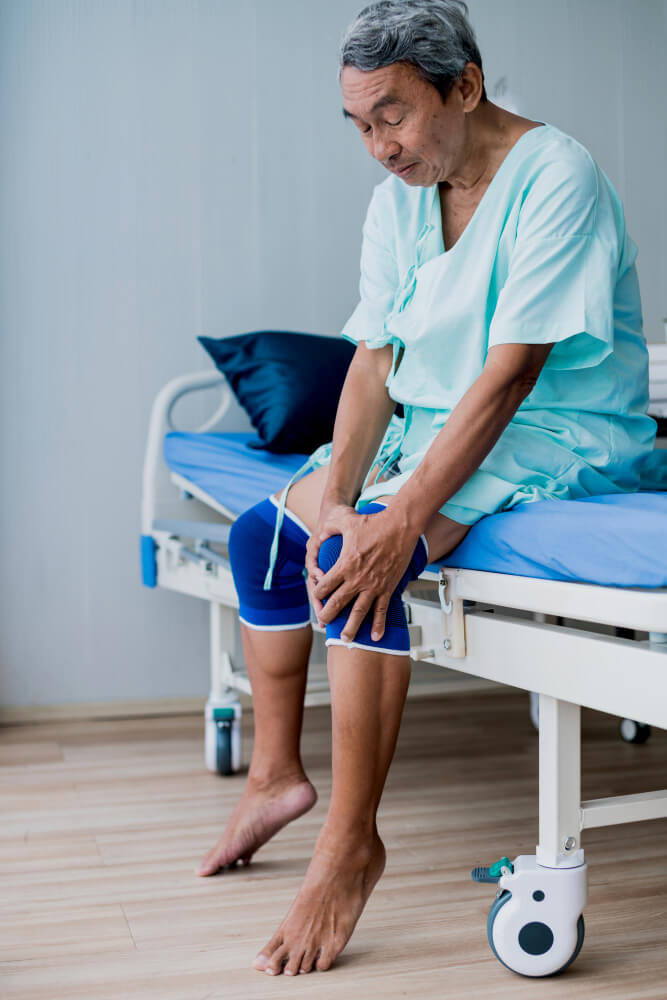Joint replacement surgeries are life-changing procedures that help alleviate pain and improve mobility in patients with severe joint damage. However, like any major surgical intervention, they carry risks, including the possibility of deep infections. Preventing these infections is crucial for a successful recovery and long-term outcome. Below are some effective strategies recommended by leading orthopaedic surgeons to minimize the risk of infection after undergoing joint replacement surgery.
Preoperative Care and Evaluation
Optimize Your Health: It is vital to be in the best possible health condition prior to surgery. Patients should work with their healthcare providers to control blood sugar levels if they have diabetes, quit smoking, and manage weight. These factors can significantly impact their body’s ability to fight infections.
Screening for Bacteria: Your surgeon might recommend screening for harmful bacteria like MRSA before the surgery. If bacteria are detected, you may need to undergo treatment to eradicate it before your procedure, reducing your risk of postoperative infection.
Surgical Environment and Techniques
Aseptic Techniques: The operating room environment and the surgical team’s adherence to strict aseptic techniques are fundamental. This includes sterilizing instruments, proper handwashing protocols, and the use of barrier techniques to prevent contamination of the surgical field.
Antibiotic Prophylaxis: The administration of antibiotics before, during, and sometimes after surgery can help prevent infections. The timing of antibiotic administration is critical to ensure its effectiveness.
Postoperative Care
Wound Care: Proper care of the surgical wound is essential. Keep the wound clean and dry, and follow your surgeon’s instructions for wound care. Be vigilant for signs of infection, such as redness, unusual swelling, persistent pain, or discharge from the wound site.
Physical Activity: Follow a prescribed rehabilitation plan to promote blood flow and prevent complications like blood clots—however, balance activity with proper rest.
Regular Monitoring: Attend all follow-up appointments so your surgeon can monitor your recovery. Early detection and treatment of any issues are crucial.
Choosing the Right Surgeon and Facility
Selecting a skilled and experienced joint replacement surgeon is critical to minimizing risks associated with joint replacement surgery. In Indore, many reputable surgeons specialize in knee and other joint replacements. Dr. Sunil Rajan, for example, is a noted knee specialist and orthopaedic surgeon in Indore, renowned for his expertise in complex joint replacement surgeries. With a reputation as one of the best knee replacement surgeons in Indore, Dr. Rajan and his team offer cutting-edge care that is tailored to each patient’s needs.
For those considering a joint replacement, it is essential to discuss all available options, including the knee replacement surgery cost in Indore. This can vary depending on various factors, such as the type of implant used and the specific needs of the patient. Understanding these factors can help in making an informed decision about where to have your surgery and who should perform it.
To Conclude
Preventing infection after a joint replacement surgery involves meticulous preparation before the surgery, careful management during the operation, and diligent care after the procedure. By choosing a seasoned knee transplant surgeon in Indore, such as Dr. Sunil Rajan, patients can ensure they are receiving top-tier care designed to minimize complications and promote a swift, successful recovery.
For more information on preparing for a joint replacement surgery or to learn more about your options, visit Dr. Sunil Rajan’s website. His expertise as a knee replacement surgeon in MP makes him a trusted choice for many seeking relief from knee pain and mobility issues.



